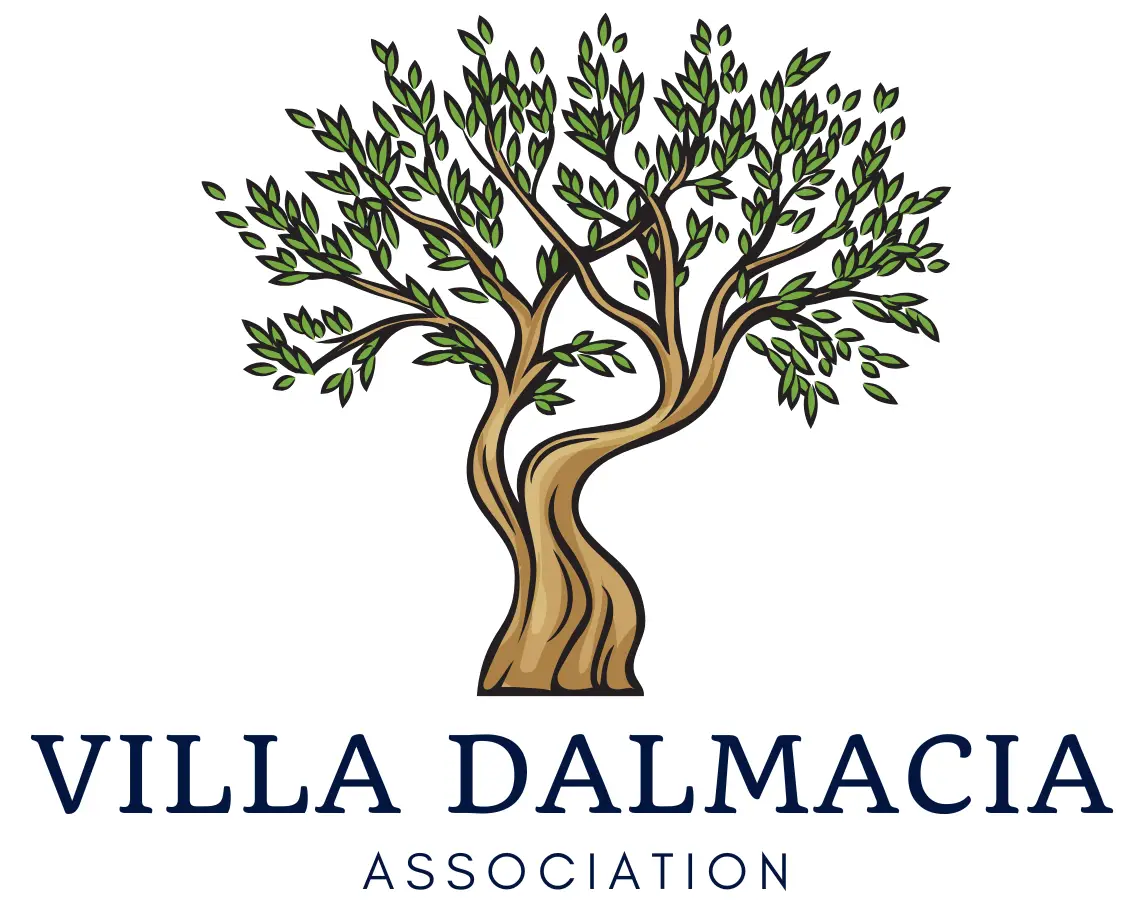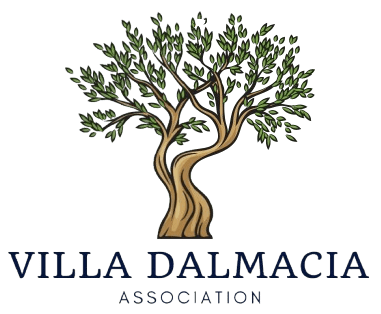
The Grants Program
Villa Dalmacia Grants Program Guide
Why Apply?
Grants should be focused on the following:
01.
Improving Community Welfare
Funding for projects that address essential needs such as health services, education, and social support.
02.
Enhancing Social Inclusion
Particularly for groups experiencing isolation or vulnerability, such as the elderly, refugees, and people with disabilities.
03.
Preserving Cultural Heritage
Supporting activities that celebrate the unique culture of Southern European and other diverse communities.
04.
Supporting Marginalized Groups
Funding is available for projects that uplift financially disadvantaged individuals, those at risk of homelessness, and people with chronic illnesses.
Grant Details:
Total Funding Available
$120,000 per year.
Grant Amount
Between $10,000 and $50,000. In exceptional circumstances, grants over $50,000 may be awarded.
Application Period
Opens on May 1st and closes on May 31st .
Award Announcement
Recipients are notified by July 1st each year.
The grant Process
- Available from May 1 2025 to May 31 2025.
- Submit online via the Villa Dalmacia Grants Portal.
- Provide key information like project description, budget, community need, and
supporting documents.
- Initial screening by the Grant Administrator ensures all applications meet eligibility requirements.
- An independent committee assesses the applications based on clear criteria.
- Recommendations are submitted to the Villa Dalmacia Board for final approval.
- Successful applicants are notified by June.
- Recipients sign a grant agreement that outlines project goals and the terms of funding.
- Funds are released based on an agreed payment schedule to help launch the project.
- Grant recipients must submit annual reports for three years, detailing project progress and community impact.
- A final report is due upon completion, summarizing outcomes and providing financial statements.
Who Will Benefit?
The grants program is designed to benefit the following groups:
- Communities of Southern European Descent: Projects that preserve and promote Southern European culture.
- Culturally and Linguistically Diverse Groups: Initiatives that address social isolation and support cultural cohesion.
- Families and Individuals: Including but not limited to:
o Early Childhood (Under 6 years)
o Children (6-15 years)
o Youth (15-25 years)
o Adults (25-65 years)
o Older Adults (65+ years)
- Marginalized Groups: Such as migrants, refugees, people from culturally and linguistically diverse backgrounds, financially disadvantaged individuals, people experiencing homelessness, and people with chronic or terminal illnesses.
- People with Disabilities: Programs that promote accessibility, inclusion, and enhanced quality of life.
- At-Risk Groups: Including victims of crime or domestic violence, unemployed persons, veterans and their families.
- Environmental Initiatives: Projects that protect or enhance the environment and encourage sustainable community practices.
- Overseas and Local Charities: Community projects that benefit both local and overseas communities.
- General Community in Australia: Any project designed to improve welfare, education, health, or social cohesion within Australia.
Guide for Villa Dalmacia Grants Program
Villa Dalmacia Association (VDA) aims to support local communities, particularly those of southern European descent, through an annual grants program. This guide outlines the policies and procedures applicable to this grants program, to ensure transparency, accountability, and community impact.

Grant Program Overview
Everything from grant program overview to partnerships: Collaborate with local organizations to maximize impact and reach.
Objectives
- Support Community Projects: Fund projects that enhance community welfare, health, education, and cultural heritage.
- Promote Social Inclusion: Address social isolation, particularly among elderly and culturally diverse communities.
- Enhance Cultural Heritage: Support activities that preserve and celebrate southern European culture.
Funding Details
- Total Annual Budget: $120,000
- Grant Range: $10,000 to $50k (However, Grants above $50k may be made in exceptional circumstances
- Grant Period: Annual, with applications due by the end of March and awards announced in June.
Policies
Eligibility
- Eligible Applicants: Individuals and organizations serving the community, with a focus on those benefiting southern European backgrounds or addressing broad community needs.
- Ineligible Applicants: Government agencies, schools, hospitals, or receiving government funding for the same program as the application.
Conflict of Interest
- No Board Member Involvement: Board members of VDA cannot apply for grants and must disclose any potential conflicts of interest.
- Independent Assessment: Applications are reviewed by an independent committee separate from the awarding body to prevent conflicts of interest.
Procedures
Application Procedure
Application Period: Opens May 1st closes May 31st , each year.
- Notification: Successful applicants are notified by July 1st each year.
- Submission: Applications must be submitted online via the VDA grants portal by the stipulated closing date.
- Requirements: Applications must be made using the official application form.
Assessment Procedure
- Initial Screening: The Grant Administrator screens applications for eligibility.
- Evaluation Committee: An independent committee assesses applications based on the establish evaluation criteria.
- Final Approval: Recommendations from the committee are reviewed and approved by the VDA Board of Directors.
Awarding Process
- Notification: Successful applicants are notified by June June 1st each year.
- Grant Agreement: Recipients must sign a grant agreement agreeing to the terms and conditions.
- Fund Disbursement: Funds are disbursed in accordance with the agreed payment schedule.
Roles and Responsibilities
Board of Directors
- Oversight: Provide strategic oversight and final approval of grants.
- Conflict Management: Ensure no conflicts of interest in the grant awarding process.
Transparency
- Clear Guidelines: Provide detailed grant guidelines and criteria on the VDA website.
- Public Reporting: Publish an annual report summarizing grant allocations and project impacts.
Grant Administrator
- Application Management: Handle the application intake, eligibility screening, and administrative support.
- Communication: Serve as the point of contact for applicants and manage communication throughout the process.
- Stakeholder Feedback: Regularly engage with community stakeholders to align the grant program with evolving community needs.
- Partnerships: Collaborate with local organizations to maximize impact and reach.
Evaluation Committee
- Assessment: Independently assess applications based on criteria and make funding recommendations.
- Conflict of Interest Management: Ensure transparent and unbiased evaluation.
Reporting and Accountability
Reporting Requirements
- Annual Report: Grant recipients must submit an annual report for three years, detailing the project’s progress and impact.
- Final Report: A comprehensive final report upon project completion, including financial statements and outcomes.
Monitoring
- Audits: Financial audits of grant recipients, if applicable, to ensure proper use of funds.
Transparency
- Clear Guidelines: Provide detailed grant guidelines and criteria on the VDA website.
- Public Reporting: Publish an annual report summarizing grant allocations and project impacts.
Community Engagement
- Stakeholder Feedback: Regularly engage with community stakeholders to align the grant program with evolving community needs.
- Partnerships: Collaborate with local organizations to maximize impact and reach.

